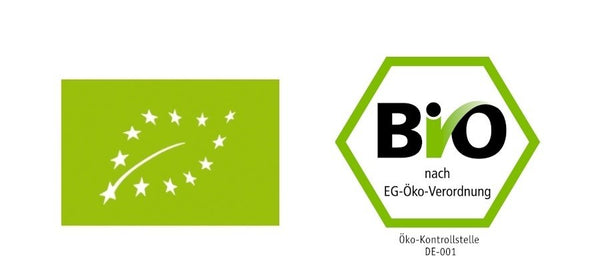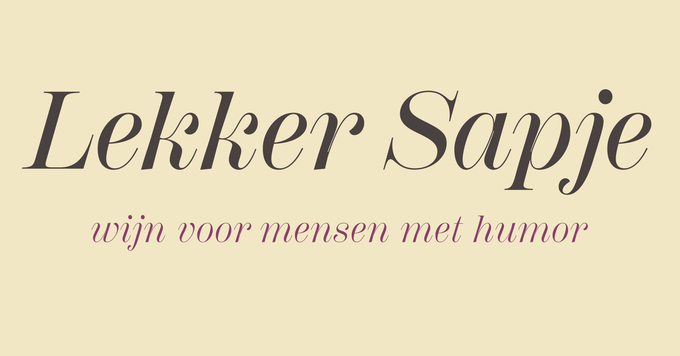To Bio or not to Bio. Sense and nonsense about organic wine.

Sense and nonsense about organic wine
Is organic wine always better?
Since 2012, the EU has approved the term organic wine and has imposed regulations. Previously, wine was only made from organically grown grapes. Now, making wine in the cellar in an organic way is also recognized. The demand for organic, biodynamic and so-called 'natural' and 'Orange' wine is increasing. There are already winemakers who have taken the horse out of the stable and put the heavy, soil-compacting tractor on Marktplaats. But is an organic wine always better for people and nature?
What's the situation now?
Before a winegrower is allowed to put the EU logo or e.g. Demeter or Ecovin on the label, he or she must meet a lot of requirements. And pay a lot of money for certification. Many smaller winegrowers therefore work organically or biodynamically but without a certificate. So it is important to delve into the winemaker and how he/she works. In addition, there are rules that you can question when you consider everything in the total winemaking process.
For example, organic winemakers are only allowed to spray with copper sulphate solutions against diseases (especially mildew aka oidium and downy mildew aka peronospora ). This introduces the heavy metal copper into the soil... This spray with copper is better known in the wine world as Bordeaux mixture , recognisable by the copper-green colour on the vine leaves.
The strange thing is that many certifiers even prescribe to organic winegrowers that they may only spray with Bordeaux mixture! Of course, they use this as little as possible. But when it is warm and humid, they really cannot avoid it. It may even be that they have to spray more often than a conventionally working winegrower.
Others (such as our winery Storr) therefore opt for so-called systemic, biodegradable agents without heavy metals and without the need to drive them out with a diesel-guzzling tractor. That also saves soil compaction due to the weight of the tractor. And all that ensures a healthier and living soil. But the wines may not be called organic. So it is all a bit more nuanced.
Naturnah and Terra Vitis
In German-speaking countries, they call the sustainable way of working 'naturnah' , close to nature. With our wines, you see 'sustainable' when the winemaker works in this way. You can go even further than just working organically or biodynamically. You can also involve the entire chain to cause the least possible burden on the environment. And you can look at working conditions. Such a holistic approach is what Terra Vitis , a French initiative, advocates. The same applies to Fair 'n Green in Germany.
Biowarfare
The vines are threatened by many plant diseases and insect pests. The healthier the plant, the more resistance it has. The winemaker helps the plant with this by biowarfare ; the use of other plants and insects that do not give the bad guys a chance. For example, you can plant herbs between the vines that attract insects that eat the disease-bringers.
Another trick is to hang up bait boxes for harmful insects with which you catch the males so that there are fewer/no offspring. Also handy: offer birds that eat the harmful insects good nesting and breeding places by planting the right trees and shrubs nearby. And instead of artificial fertilizer, you can plant nitrogen fixers that provide sufficient food for the vines. For example lupine. All kinds of natural sprays have also been developed, for example based on nettle and camomile. The whole idea behind this is: ensure the healthiest possible vines and a biodiverse environment. The stronger the vines, the less susceptible they are to diseases and pests.
Natural wine and Orange wine, hit or shit?
Orange wine and natural wine can be a bit stale. These wines often have a special taste, usually due to (light) oxidation. Natural wine is wine that has been made with virtually no intervention. And to which little or no sulphites have been added. Incidentally, some sulphites are always formed during fermentation, so in fact it is always present (a little). Sulphites protect a wine against oxidation (and thus against vinegar formation). The winemaker has to work extremely cleanly to keep the wine stable in the bottle without sulphites. A disadvantage of sulphites-free wines is that there can be considerable differences in taste per bottle. But if they are good, they are often beautiful. Did you know that a bag of chips contains much more sulphites than a bottle of wine? Wine writer Niels van Laatum has written a pleasant book about it: Natural Wine, a Clear Story about Cloudy Wine.
At Lekker Sapje you will also find natural and orange wines , and of course the good kind.
Orange wines , these are white wines that have an orange-like hue. They are made in an age-old way. Bunches of grapes with juice and all in a large amphora or quevri for example. So also with white wine the grapes are added. This provides tannins and more color in the white wine. Lid on, spontaneous fermentation and after 3 months just see if it is any good. The tannins protect the wine against oxidation for some time. Can be fantastic but there is also a chance of so-called volatile acids. These are volatile acids such as acetic acid that give a sharp acetone taste. Of course you can also make red wine this way. It is hip now, the wines are often expensive compared to the quality but it can also be very nice. There is also a nice book about this in English by Simon Woolfe: Amber Revolution .
Okay, so?
Sense and nonsense about organic wine: you see that there is a lot involved. If you want to do it well and really sustainably, you have to look at the entire process, so for example also at bottle weight, transport, packaging, water and energy use in making wine etc. The last word has certainly not been said about this and we naturally advocate for wines that are as sustainable as possible. The range of Lekker Sapje is therefore based on this. New wines in the range are always organic or biodynamic. Our transporters compensate their CO2 emissions.
Latest news : a replacement for sulphite is coming to the market. As soon as more is known, we will of course report it. More information on www.biologica.nl
The left logo below is for organic wines from the EU. Since the 2012 harvest, it is allowed on the label. The right logo is also allowed and is mainly used in Germany.

